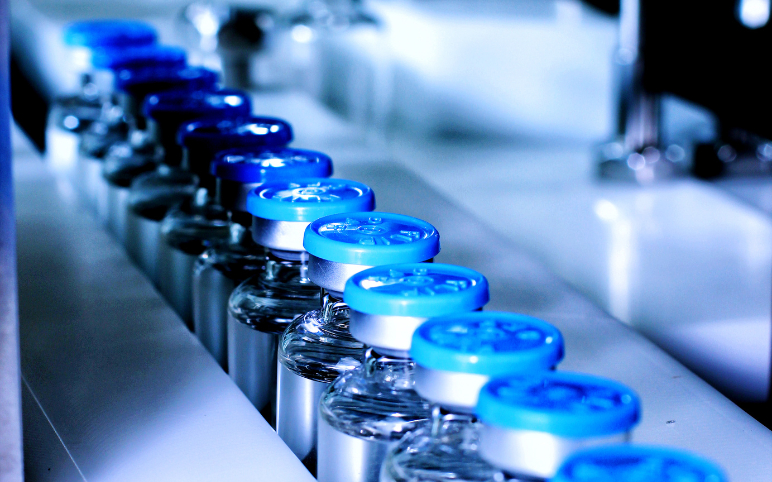U.S. FDA Approves Eli Lilly’s Treatment for Type 2 Diabetes
The FDA has approved Eli Lilly’s injectable drug, tirzepatide, branded as Mounjaro, to help adults with Type 2 Diabetes improve blood sugar control. According to the FDA, Mounjaro, when combined with diet and exercise, lowered blood sugar levels and was more successful than other diabetes therapies tested in clinical trials. Mounjaro is intended to activate hormone receptors involved in blood sugar management. It is given once a week by injection under the skin, with the dose adjusted as tolerated to meet blood sugar objectives.
There will be six doses of Mounjaro available: 2.5mg, 5mg, 7.5mg, 10mg, 12.5mg, and 15mg in an auto-injector pen with a hidden pre-attached needle. The recent approval is based on Phase III SURPASS study outcomes, which comprised active comparators of injectable 1mg semaglutide, insulin glargine, and insulin degludec.
The clinical trial looked at the efficacy of Mounjaro dosages of 5, 10, and 15mg alone or in combination with diabetes treatments such as SGLT2 inhibitors, metformin, insulin glargine, and sulfonylureas. According to trial data, individuals achieved average A1C reductions of 1.8 to 2.1% for 5mg Mounjaro and 1.7 to 2.4% for both 10 and 15mg dosages of Mounjaro.
Even though the medication is not intended for weight loss, mean change in body weight was a critical secondary outcome in all SURPASS trials. Subjects who got Mounjaro lost an average of 12lb (5mg) to 25lb (15 mg). A minimum of 5% of participants in the Mounjaro arm experienced nausea, diarrhea, decreased appetite, vomiting, constipation, indigestion, and stomach discomfort. Mounjaro’s label also has a boxed warning about thyroid C-cell tumors.
Bristol Myers sells NY biologics plant for $160M to fuel Lotte’s drug-making Ambitions
Bristol Myers Squibb has announced that LOTTE has agreed to buy Bristol Myers Squibb’s manufacturing facility in East Syracuse, New York. Upon closing, LOTTE will acquire the East Syracuse site’s operations and assets, which include the property, plant, and equipment, technical capabilities, and expertise. Moreover, following the closing of the transaction more than 400 Bristol workers will be working for the LOTTE. LOTTE, under a newly-established CDMO relationship, will manufacture products for Bristol Myers Squibb from the East Syracuse facility.
Established in 1943, the East Syracuse site is a state-of-the-art manufacturing facility with a commercial-scale production capacity for biologics. The site was established to fulfilled penicillin demand with the large-scale production at that time. LOTTE is expected to utilize the East Syracuse site as its Center for North America Operations for new biologics contract development and manufacturing organization (CDMO) business in the United States.
Based in Seoul, Korea, LOTTE Corporation is a holding company of LOTTE Group. LOTTE Group is Korea’s fifth-biggest conglomerate encompassing four key business areas including Food & Beverage, Retail, Chemical, Hotel & Service with more than 90 affiliates. The majority of the Group’s businesses have taken leading positions in the domestic market. The overall transaction process is expected to be completed by the second half of 2022, subject to regulatory approvals and the satisfaction of other closing conditions.
Mitsubishi Tanabe scores FDA nod for oral version of its ALS drug Radicava
In the latest regulatory updates, the U.S. Food and Drug Administration has approved Mitsubishi Tanabe Pharma America’s Radicava ORS (edaravone), as an oral treatment for Amyotrophic Lateral Sclerosis (ALS). The drug was earlier approved in the US, as an into-the-vein therapy (intravenous (IV) treatment) to slow ALS progression, and the oral formulation is expected to deliver the same efficacy as IV infusion treatment, said the company.
The approval of Radicava ORS (edaravone) was based on a study of 137 participants who received either Radicava or a placebo. By week 24, participants taking Radicava showed less decline in daily functioning compared with the placebo group. In a separate study, the oral dosage was shown to be present at comparable levels in the bloodstream compared with the injectable version.
Amyotrophic lateral sclerosis, also known as Lou Gehrig’s disease, is the most common form of motor neuron disease in adults. As per DelveInsight, in 2020, the number of diagnosed Amyotrophic lateral sclerosis prevalent cases was 18,824, which is expected to increase in the coming years. Radicava ORS (edaravone) offers a more convenient administration option for patients who cannot or would rather not take the intravenous formulation of Radicava. The launch of the Radicava ORS (edaravone) is expected to improve the treatment scenario for the ALS-affected population. Similarly, another oral ALS drug developed by Amylyx Pharmaceuticals is also expected to enter the market upon FDA approval.
Sandoz launches first US generic of Roche’s Esbriet
On of the most prominent leader of biosimilars and generics – Sandoz announced the US launch of it’s generic Pirfenidone, which is considered to be the first AB-rated (fully substitutable) equivalent to Roche/Genentech’s top-tier blockbuster drug Esbriet for Idiopathic Pulmonary Fibrosis (IPF) treatment.
This prescription is to be administered orally and is made immediately available to patients via specialty pharmacies. “Sandoz is putting patients first by expanding access to generic pirfenidone for those living with this rare disease, who will benefit from a more affordable, yet equally effective treatment,” said Keren Haruvi, President, Sandoz Inc. “We developed this medicine in-house and continue to build our expertise and infrastructure to support our long-term commitment to grow our respiratory portfolio.”
Idiopathic Pulmonary Fibrosis is an immunological, progressive disorder with no permanent cure, and is also considered to be rare. This condition involves damage to respiratory tract, it can lead to an irreversible lung scarring, making it difficult to breathe. Primarily, Idiopathic Pulmonary Fibrosis affects adults aged 50 years and older, and also is more observed in males than females. IPF characterization can be done on the basis of chronic inflammation of lung, affecting around 140,000 Americans. Recommendation for patients with IPF includes eating well, staying active, and using oxygen therapy, if prescribed.
It was observed that Esbriet generated a revenue of USD 1.04 billion in the year 2021, where 732 million USD came solely from the US. The leading competitor for Pirfenidone, that is Boehringer Ingelheim’s Ofev, supposedly accumulated a net revenue of 2.58 billion USD, this drug constitutes for a broader label for different types of interstitial lung disease.
It is under notice that the entire U.S. generics industry is seemingly under pricing pressure for years, so Sandoz is seen to have inclined its focus to biosimilars and more complex generics. Just last month, the biosimilar leader also launched a generic version of AbbVie’s Combigan (eye drops) for elevated eye pressure treatment.
Atamyo Therapeutics Announces Significant Milestones for ATA-100 and ATA-200, its Gene Therapy Programs to Treat Limb-Girdle Muscular Dystrophy 2I/R9 and 2C/R5
A biotechnology company – Atamyo Therapeutics, pivoted around the development of new-generation gene therapies targeting neuromuscular diseases, recently announced many milestones for their one-time gene-replacement therapies – ATA-100 and ATA-200, for treatment of Limb-Girdle Muscular Dystrophy types 2I/R9 and 2C/R5 (LGMD2I/R9 and LGMD2C/R5 respectively), and also the reinforcement of its management team.
For ATA-100, the third authorization of a Clinical Trial Application (CTA) in Europe was granted by the French National Medicines Health Agency (ANSM). ATA-100, which is a single dose administration gene therapy for LGMD2I/R9, aims to deliver a normal copy of the gene for the production of FKRP proteins. LGMD2I/R9 is a rare genetic disease caused due to several mutations occurrence in a gene that produces a fukutin-related protein (FKRP) and it also affects approximately 5,000 people in the US and Europe.
On the other hand, ATA-200, the revolutionary Atamyo’s one-time gene replacement therapy for the treatment of LGMD 2C/R5, has been granted Orphan Drug Designation by the European Medicines Agency (EMA) for Limb-Girdle Muscular Dystrophy treatment.
Orphan Drug Designations granted by EMA hold a ten-year market exclusivity in Europe and also provide with some other perks such as protocol assistance, tax credits, and research grants. The therapy is based on the research of Atamyo Chief Scientific Officer Isabelle Richard, Ph.D., Research Director at CNRS who heads the Progressive Muscular Dystrophies Laboratory at Genethon.
Pfizer to Acquire Biohaven Pharmaceuticals
Pfizer and Biohaven Pharmaceutical Holding Company Ltd. have announced that Pfizer would acquire Biohaven, the maker of NURTEC® ODT, an innovative and breakthrough dual-acting migraine medicine approved for both acute treatment and episodic prevention in adults.
Under the agreement terms, Pfizer will acquire all outstanding shares of Biohaven that are not already possessed by Pfizer for $148.50 per share in cash. Biohaven common shareholders, including Pfizer shareholders, will also receive 0.5 of a share of New Biohaven. This new publicly traded company will retain Biohaven’s non-CGRP development stage pipeline compounds, per Biohaven’s common share. The boards of directors of both the companies, Pfizer and Biohaven Pharmaceuticals have unanimously approved the transaction.
Pfizer will make payments at closing to settle Biohaven’s third-party debt & for the redemption of all outstanding shares of Biohaven’s redeemable preferred stock.
The proposed deal includes the acquisition of calcitonin gene-related peptide programs by Biohaven, including:
- Rimegepant, was approved in the United States under the trade name, NURTEC® ODT, for the treatment of acute migraine and preventive treatment of episodic migraine. Rimegepant was approved in the European Union under the trade name, VYDURA®, for the treatment of acute migraine and prevention of episodic migraine
- Zavegepant is on track for a 2Q2022 acceptance in the United States as an intranasal spray for the treatment of acute migraine & in advancement as an oral soft gel to prevent chronic migraine
“Today’s announcement builds on the legacy of delivering advancements for patients suffering with complex pain disorders that disproportionately impact women,” added Nick Lagunowich, Global President, Pfizer Internal Medicine. “NURTEC® ODT, which is already the top prescribed medicine for migraine in its class in the United States, in combination with Biohaven’s CGRP pipeline, offers hope for patients with migraine globally.
The acquisition of Biohaven by Pfizer is contingent on the completion of the New Biohaven spin-off transaction and other normal closing conditions, such as regulatory approvals and shareholder approval. The deal is expected to finalize in early 2023, according to both the companies.
eureKARE Launches €150M Merger to Form Cell and Gene Therapy CDMO
eureKARE, a French startup creator, has set up a special purposes acquisition company with an ojective to merge various European contract development and manufacturing organizations into a heavyweight serving developer of gene therapies, protein drugs, and microbiome therapeutics.
Over the last few years, record funding levels have flowed into the biotechnology industry, particularly to key players developing gene and cell therapies. There has been a rise in demand for contract development and manufacturing organizations that can handle the manufacture of complex biological products such as protein drugs and cell therapies.
The biotech CDMO market is fueled by five major players: Boehringer Ingelheim, Catalent, Lonza, Samsung Biologics, and WuXi Biologics. However, the big 5 focuses primarily on large scale manufacturing, which doesn’t suit small biotech firms testing their cell and gene therapies in early-stage clinical trials.
eureKARE aims to fill in the manufacturing needs of small biotech firms across their clinical development pipeline. The organization has set up eureKING, a special purpose acquisition company, that plans to absorb three European CDMOs into one single entity & compete with the leading CDMO giants.
While there are many alternatives of CDMOs at smaller level for biotech companies, Kloss noted that very small producers often have a hard time meeting regulatory needs due to the lack of attendants or technical equipment and typically focus on making a few specific drugs.



